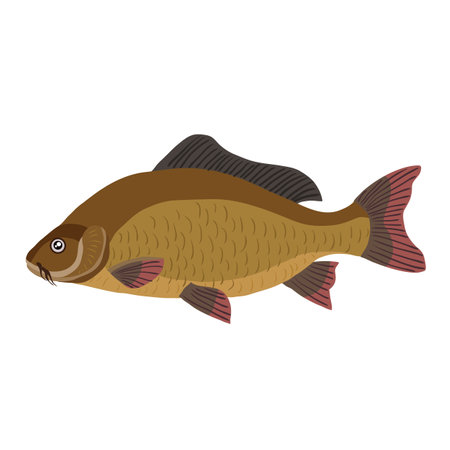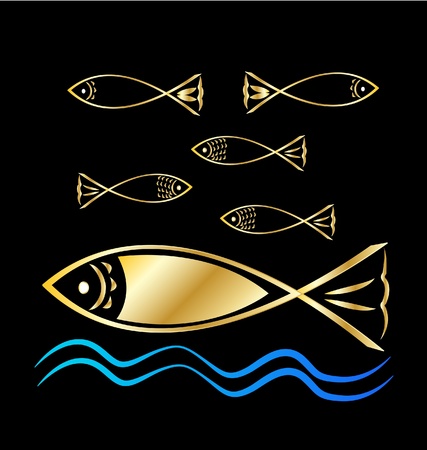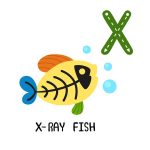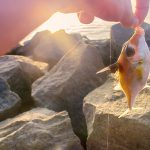Understanding Washingtons Fishing License Requirements
If youre planning to go fishing in Washington State, whether its in a peaceful freshwater lake or out on the salty waters of Puget Sound, you’ll need to make sure you have the right fishing license. The Washington Department of Fish and Wildlife (WDFW) requires most anglers to carry a valid fishing license — but there are a few details you should know before casting your line.
Who Needs a Fishing License?
In general, anyone age 15 or older needs a fishing license to fish in Washingtons public waters. This applies to both residents and non-residents. However, some exceptions may apply depending on age, residency status, and specific dates like free fishing weekends.
Age Requirements
| Age Group | License Requirement |
|---|---|
| Under 15 years old | No license required (for both residents and non-residents) |
| 15 years and older | Fishing license required |
Residency Considerations
Your residency status affects the cost and type of license you can purchase. Heres how Washington defines residency for licensing purposes:
| Status | Description | Eligible for Resident License? |
|---|---|---|
| Resident | Lived in Washington for at least 90 days prior to purchasing license, with proof such as a driver’s license or utility bill | Yes |
| Non-Resident | Lives outside of Washington or has not met the 90-day requirement | No (must buy non-resident license) |
Types of Fishing Covered by Licenses
Washington offers different licenses depending on where and what you plan to fish. Here’s a quick overview:
| License Type | Covers Freshwater? | Covers Saltwater? |
|---|---|---|
| Freshwater License | ✔️ Yes | ❌ No |
| Saltwater License | ❌ No | ✔️ Yes |
| Combination License | ✔️ Yes | ✔️ Yes |
A Note About Free Fishing Weekend
Washington typically offers one “Free Fishing Weekend” each year, when no license is required for fishing. It’s a great opportunity for beginners or visitors to try out fishing without committing to a full license.
Before heading out, always double-check current regulations on the WDFW website or at a local licensing vendor to make sure youre covered.
2. Types of Fishing Licenses Available
Washington State offers a variety of fishing licenses to meet the needs of different anglers, whether youre planning a single day on the water or a full season of freshwater and saltwater adventures. Understanding the types of licenses available can help you choose the one that fits your fishing plans best.
Annual Licenses
If youre a frequent angler, an annual license is the most cost-effective option. These licenses are valid from April 1 through March 31 of the following year and are available for residents and non-residents alike.
| License Type | Description | Who Its For |
|---|---|---|
| Freshwater License | Covers fishing in rivers, lakes, and streams. | Anglers who prefer inland fishing for trout, bass, or other freshwater species. |
| Saltwater License | Covers fishing in coastal and marine waters. | Those targeting ocean species like halibut, lingcod, or rockfish. |
| Combo License | Includes both freshwater and saltwater privileges. | Best for anglers who fish in both environments throughout the year. |
Short-Term Licenses
If youre visiting Washington or only plan to fish occasionally, short-term licenses are a convenient choice. They’re available for 1-day, 2-day, and up to 3-day durations, with options for both freshwater and saltwater fishing.
Perfect for:
- Tourists or out-of-state visitors
- Weekend trips or spontaneous outings
- Trying out fishing before committing to an annual license
Special Permits and Endorsements
Certain species require additional permits due to conservation efforts or specific regulations. These endorsements must be purchased along with a valid fishing license if you plan to target specific fish or shellfish.
| Permit Type | Required For | Notes |
|---|---|---|
| Salmon Endorsement | Fishing for salmon in designated areas | Helps support hatchery programs and salmon recovery efforts. |
| Steelhead Report Card | Catching steelhead trout in any waters | You must record each catch; reporting is mandatory at the end of the season. |
| Puget Sound Crab Endorsement | Dungeness crab harvesting in Puget Sound | You’ll also need to submit a catch record card by season’s end. |
| Shellfish/Seaweed License | Harvesting clams, oysters, mussels, seaweed, etc. | This is required even if you already have a combo license. |
Youth and Senior Licenses
Younger anglers under age 15 don’t need a license but may still need special permits depending on the species. Discounted rates are also available for seniors aged 70 and older who are Washington residents.
Tip:
If you’re unsure which licenses or permits you need, use the Washington Department of Fish & Wildlifes licensing tool to guide you through the process based on your fishing plans.
Selecting the right license ensures you stay legal while enjoying all that Washington’s diverse waters have to offer—from trout-filled mountain lakes to Pacific coast saltwater adventures!

3. How and Where to Purchase Your License
Getting your fishing license in Washington State is easier than ever, whether you’re planning to fish in freshwater lakes or along the saltwater coast. Here’s a step-by-step guide on how to buy your license through different convenient options.
Buy Online Through WDFW
The fastest and most convenient way to get your fishing license is online through the Washington Department of Fish and Wildlife (WDFW) website. Here’s how:
- Visit the WDFW licensing portal.
- Create an account or log in with your existing information.
- Select the type of license you need (freshwater, saltwater, or combo).
- Enter your personal details and make your payment using a credit or debit card.
- Print your temporary license immediately, or save a digital copy on your phone. Your official license will be mailed to you.
Purchase at Licensed Retail Vendors
If you prefer buying in person, Washington has hundreds of authorized vendors statewide. These include sporting goods stores, bait shops, hardware stores, and even some big-box retailers like Walmart and Cabela’s.
Common Retail Locations:
| Vendor Type | Examples |
|---|---|
| Sporting Goods Stores | Big 5 Sporting Goods, Sportsman’s Warehouse |
| Bait & Tackle Shops | Local independent fishing supply stores |
| Big-Box Retailers | Walmart, Cabela’s |
| Hardware Stores | Ace Hardware (select locations) |
You can find a full list of authorized vendors by visiting the WDFW website’s vendor locator tool.
Buy by Phone or Mail
If online or in-person options aren’t for you, there are still other ways to get licensed:
By Phone:
- Call WDFW Licensing at 866-246-9453 during business hours.
- Have your personal info and payment method ready.
- Your temporary license will be emailed or mailed to you depending on preference.
By Mail:
- You can also request a paper application form by calling or downloading it from the WDFW site.
- Fill it out and mail it with payment to the address provided on the form.
Things to Remember When Purchasing
- You’ll need to provide basic identification information like name, address, date of birth, and possibly your Social Security number (as required by federal law).
- Make sure you know what species you plan to fish for—some licenses require endorsements for specific activities like salmon or shellfish harvesting.
- If youre a resident of Washington State, youll pay less than non-residents for most licenses.
No matter which method you choose, make sure to carry your license with you while fishing—either printed or saved digitally on your smartphone. It’s required by law and helps support conservation efforts across Washington State.
4. License Costs and Discounted Options
Fishing in Washington State is a great way to enjoy the outdoors, but before you cast your line, its important to know what a fishing license will cost. Prices vary depending on whether youre a resident or non-resident, and there are several discounted options available for specific groups like seniors, youth, veterans, and individuals with disabilities.
Standard License Fees
The Washington Department of Fish and Wildlife (WDFW) offers different types of licenses based on the type of water (freshwater or saltwater) and the length of time you plan to fish. Heres a breakdown of the most common license options:
| License Type | Resident Price | Non-Resident Price |
|---|---|---|
| Annual Freshwater License | $29.50 | $84.50 |
| Annual Saltwater License | $30.05 | $59.75 |
| Annual Combo (Freshwater + Saltwater + Shellfish) | $55.35 | $124.65 |
| One-Day Fishing License | $11.35 | $20.15 |
| Three-Day Fishing License | $19.05 | $37.05 |
| Two-Pole Endorsement (Add-on) | $14.80 | $14.80 |
Discounted Licenses and Special Pricing
Youth Licenses (Ages 15 and under)
Youth under age 15 do not need a fishing license for most recreational fishing activities in Washington, but they may still need to follow rules such as catch limits and reporting requirements.
Senior Licenses (Age 70+)
Washington residents age 70 or older can qualify for reduced-rate fishing licenses:
| Senior Resident License Type | Price |
|---|---|
| Annual Freshwater or Saltwater License | $7.50 each |
| Annual Combo License (includes shellfish) | $19.05 |
Veterans and Active-Duty Military Personnel
Certain veterans and active-duty military members who are Washington residents may be eligible for discounted licenses. To qualify, proof of service-related disability or active duty status is required.
- Disabled Veteran Combo License: $5.00 (includes freshwater, saltwater, shellfish)
- Active-Duty Resident Military: May purchase resident licenses regardless of home state.
Individuals with Disabilities
The WDFW offers special pricing for individuals with qualifying permanent disabilities. These licenses must be applied for through a special application process and typically include full fishing privileges at reduced rates.
- Reduced Fee Disability Fishing License: $5.00 (combo license)
- No-fee Catch Record Cards: Available upon request for certain species tracking.
Please Note:
All prices listed are subject to change by the Washington Department of Fish and Wildlife. Always check the official WDFW website or contact an authorized license vendor before purchasing your license.
If youre eligible for any discounts or special pricing, make sure to bring the required documentation when applying in person or submit it online if purchasing digitally.
A little planning goes a long way in saving money while making the most of your fishing adventures in the Evergreen State!
5. Rules, Regulations, and Compliance Tips
Fishing in Washington State is a rewarding experience, but its important to follow the rules and regulations set by the Washington Department of Fish and Wildlife (WDFW). These rules are in place to protect fish populations and ensure everyone has a fair and safe time on the water. Whether youre casting a line in freshwater lakes or heading out to saltwater bays, understanding the basics can help you avoid fines and enjoy your fishing trip worry-free.
Know Your Fishing Seasons
Fishing seasons vary depending on the species and location. Some areas may be open year-round, while others have limited windows when fishing is allowed. Always check the current WDFW regulations before you go.
| Species | Freshwater Season | Saltwater Season |
|---|---|---|
| Trout | Late April – October (varies by lake) | N/A |
| Salmon | June – October (varies by river) | July – September (depending on marine area) |
| Steelhead | Winter & Summer runs (varies by region) | N/A |
| Dungeness Crab | N/A | July – September (select areas only) |
Understand Catch Limits
Certain fish species have daily bag limits to help maintain healthy populations. These limits can change based on the body of water or current environmental conditions, so double-check the rules before you fish.
| Species | Daily Limit |
|---|---|
| Rainbow Trout | 5 per day (only 2 over 13 inches in some waters) |
| Chinook Salmon | 2 adults (check for hatchery vs wild restrictions) |
| Largemouth Bass | No more than 5, with only one over 17 inches |
| Dungeness Crab (male only) | 5 per day in most marine areas |
Gear Restrictions and Area Rules
Certain waters have special rules regarding what gear you can use. For example, barbless hooks may be required in some salmon fisheries, and bait may be prohibited during catch-and-release seasons. Also, many rivers and lakes have designated fishing zones with specific access points and boundary lines.
Tips to Stay Compliant:
- Always carry your fishing license: Make sure it’s valid and accessible at all times.
- Check for emergency rule changes: WDFW frequently updates conditions online due to environmental changes.
- Use legal gear: Know what types of hooks, bait, or nets are allowed where you plan to fish.
- Follow size and bag limits: Measure your catch carefully and release anything that doesn’t meet requirements.
- Respect protected species: Some fish must be released immediately if caught accidentally.
Where to Find Up-to-Date Regulations
The best way to stay informed is by visiting the official WDFW website or downloading their mobile app. You’ll find detailed maps, rulebooks, emergency closures, and more helpful tools for planning your trip responsibly.
Visit WDFWs Official Fishing Regulations Page »
If youre ever unsure about a rule or restriction, its always safer to ask or look it up before heading out. Being informed not only helps conserve Washingtons beautiful natural resources but also keeps your fishing trips stress-free.
6. Frequently Asked Questions
How long is my Washington fishing license valid?
Most fishing licenses in Washington State are valid from April 1 through March 31 of the following year. This applies to both freshwater and saltwater licenses, unless otherwise specified for short-term or temporary permits.
Can I renew my fishing license online?
Yes, you can easily renew your fishing license online through the Washington Department of Fish and Wildlife (WDFW) website. You’ll need your WILD ID or personal information to log in. Renewals typically open a few weeks before the new license year begins on April 1.
Are digital fishing licenses accepted in Washington?
Yes, Washington allows anglers to carry a digital copy of their fishing license. You can show proof of your license on your smartphone using the WDFW mobile app or by downloading a PDF version after purchasing online. Just make sure your phone is charged and accessible while youre out on the water.
What should I do if I lose my fishing license?
If you lose your physical license, you can reprint it online through the WDFW website or request a duplicate at any authorized license dealer. Some locations may charge a small fee for a replacement copy.
Quick Reference Table
| Question | Answer |
|---|---|
| License Validity Period | April 1 – March 31 annually |
| Online Renewal Available? | Yes, via WDFW website |
| Digital License Accepted? | Yes, via app or PDF download |
| Lost License Replacement | Reprint online or visit dealer; small fee may apply |
Do I need separate licenses for freshwater and saltwater fishing?
Yes, if you plan to fish in both freshwater and saltwater areas, you’ll need to purchase each type of license separately. However, combo licenses are available at a discounted rate for anglers who fish in both environments.
Is there a grace period for expired licenses?
No, once your fishing license expires on March 31, you must renew it before engaging in any fishing activities. There is no grace period, so be sure to renew on time to avoid fines or penalties.
Still Have Questions?
If you still have questions about fishing licenses in Washington State, visit the official Washington Department of Fish and Wildlife website, or contact their customer service team for personalized help.


